
IGCSE English as a Second Language: Listening, Writing, and Speaking
Preparing for your IGCSE English as a Second Language (ESL) exam can feel daunting. You are not just learning grammar
Learn how to write step-by-step answers, and score A* in your exam!
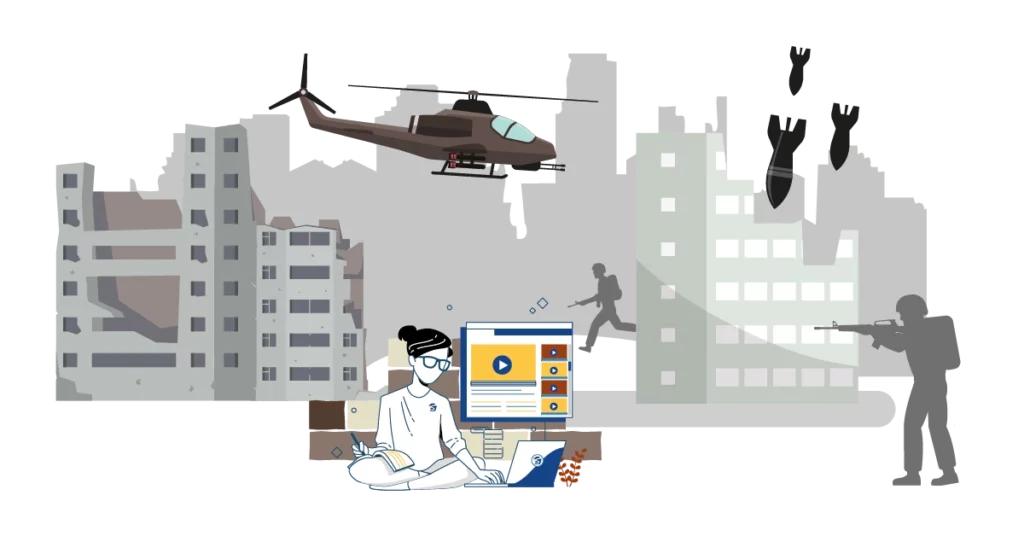
Announcement: Cambridge IGCSE, O Level and AS & A Level June 2025 past papers are now available.
In the face of violence and uncertainty, education stands as a beacon of hope, offering students the tools to navigate through challenges, advocate for peace, and rebuild their communities.
This exploration highlights the resilience and determination of young learners who, despite the dire circumstances, seek knowledge as a means to transcend their current reality and shape a better future for themselves and their societies.
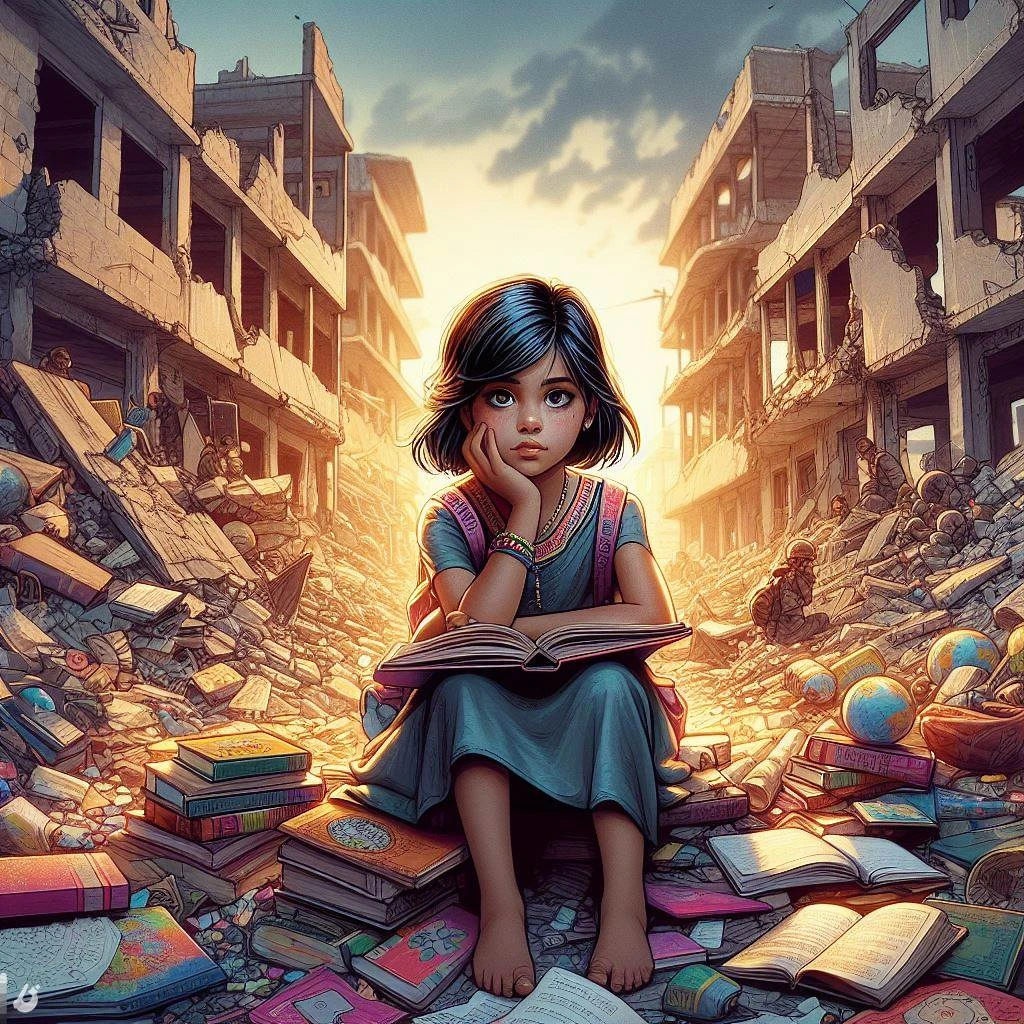
Education is often viewed as a fundamental right and a key driver of development, enabling individuals to reach their full potential and contribute. However, its impact goes beyond the acquisition of knowledge and skills. Education has the power to transform lives, especially in conflict zones, where it can provide solace, hope, and a sense of normalcy amidst chaos.
In this article, we will delve into the transformative potential of education in conflict zones. We will explore how education can address inequalities, promote healing, empower agents of change, contribute to peacebuilding, and act as a catalyst for reconstruction and sustainable development. Through case studies and examples, we will highlight successful efforts to overcome barriers and showcase the long-term benefits of investing in education during times of war.
During times of war, education often becomes a casualty, with schools destroyed, teachers displaced, and educational systems disrupted. It is crucial to understand the impact of such losses and the vital role education plays in rebuilding societies, fostering peace, and empowering individuals. By exploring education’s transformative potential in conflict zones, we can better understand the challenges and opportunities it presents, and work towards creating a brighter future for all.
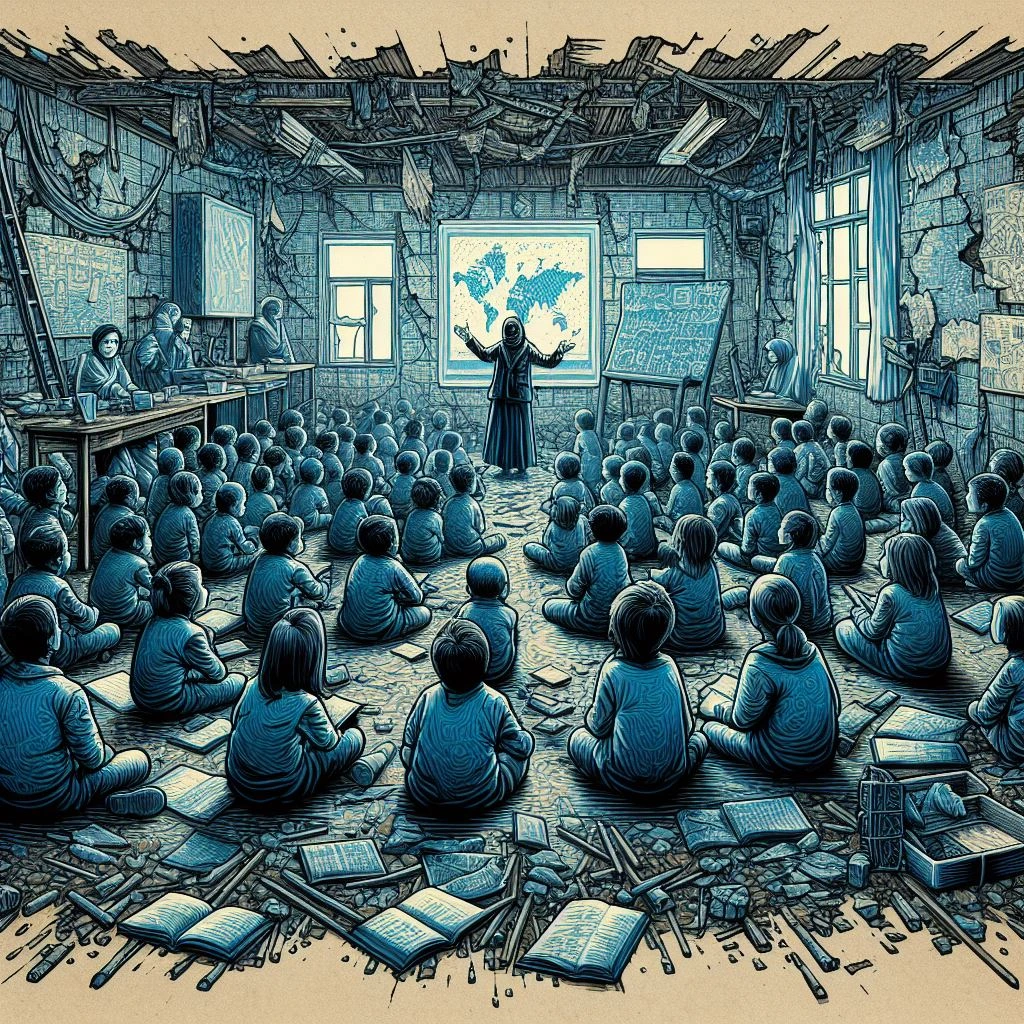
In conflict zones, accessing education becomes a difficult task due to various barriers. Displacement and refugee challenges severely disrupt schooling, as families are forced to leave their homes and seek refuge elsewhere. Limited infrastructure and resources further hinder education, with schools being destroyed or occupied, and a lack of funding and supplies. Additionally, gender disparities persist, with girls often facing social and cultural barriers that prevent them from attending school.
Despite the challenges, there have been remarkable efforts to overcome barriers and ensure access to quality education in conflict zones. Community-based education initiatives, led by local organisations and volunteers, have played a crucial role in providing learning opportunities for children in areas where formal schooling is inaccessible. Digital technologies have also played a significant role in bridging educational gaps, enabling remote learning, and connecting students with educational resources. Moreover, empowering girls through educational opportunities has been a key focus, with initiatives providing scholarships, mentorship programs, and safe learning environments.
This is one of the solutions that Skolatis provides. Access to a high-quality education no matter the student’s location and situation through technology.
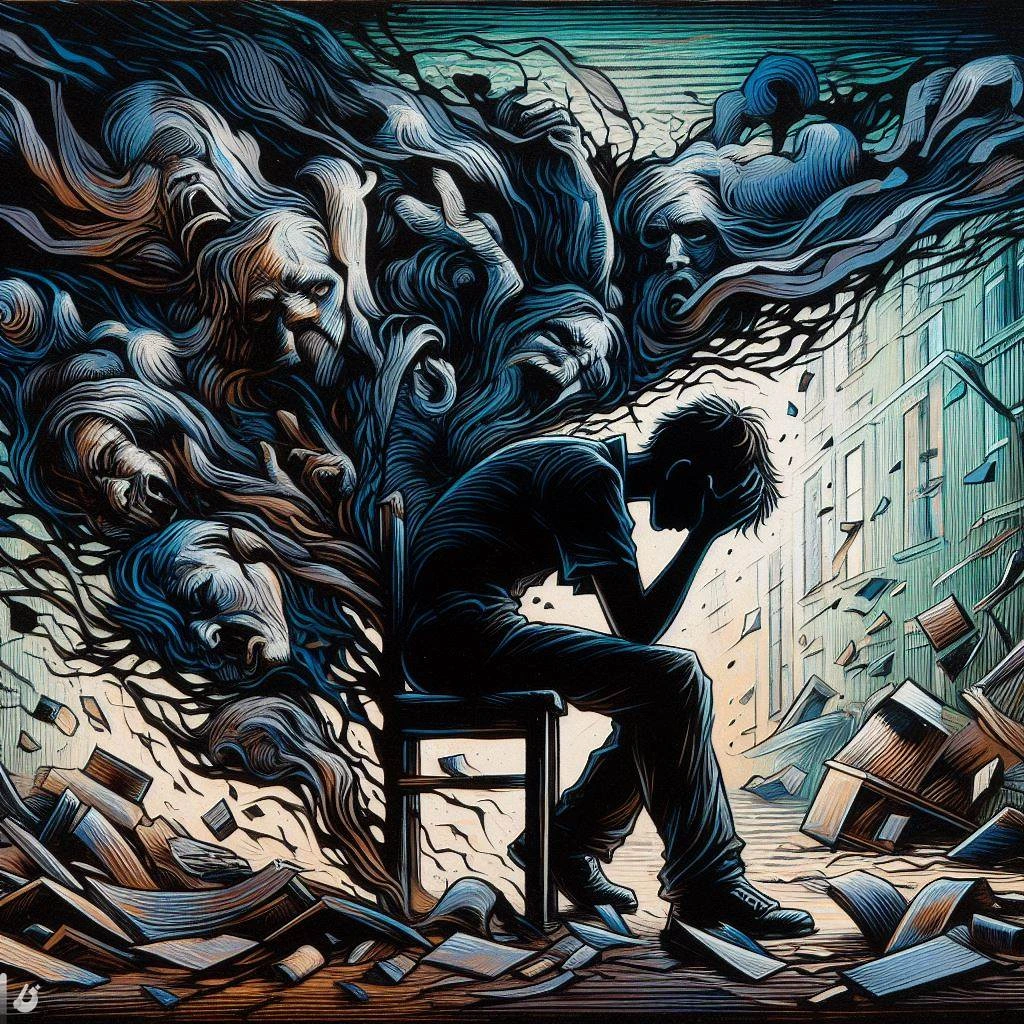
War and conflict leave a lasting impact on the mental health and well-being of students. Post-traumatic stress disorder (PTSD) and trauma are common outcomes that affect students’ ability to learn and function in society. Education can provide vital psycho-social support, offering a safe space for healing and emotional well-being.
To address the psychological impact of war, it is crucial to integrate psycho-social support within educational systems. Implementing counselling and mentoring programs can provide students with the necessary support to navigate through trauma and develop resilience. Training teachers for trauma-informed education equips them with the skills to identify and address the needs of traumatised students. Collaborating with local communities, including parents and community leaders, can create a holistic healing approach that nurtures emotional well-being.

Education plays a crucial role in cultivating peace-centric values and skills among students. It offers opportunities to learn conflict resolution and mediation techniques, fostering intercultural understanding and empathy. By promoting critical thinking and tolerance, education empowers individuals to become agents of change and contribute to peacebuilding efforts.
To further enhance the role of education in peacebuilding, it is essential to integrate peace education within the curriculum. Educating for inclusivity and human rights enables students to understand the importance of peaceful coexistence and respect for diversity. Developing inclusive and culturally responsive pedagogies ensures that education caters to the needs of all students and fosters a culture of acceptance. Collaboration between educational institutions and grassroots peace initiatives can also create synergy, enabling cross-learning and the development of comprehensive peacebuilding strategies.
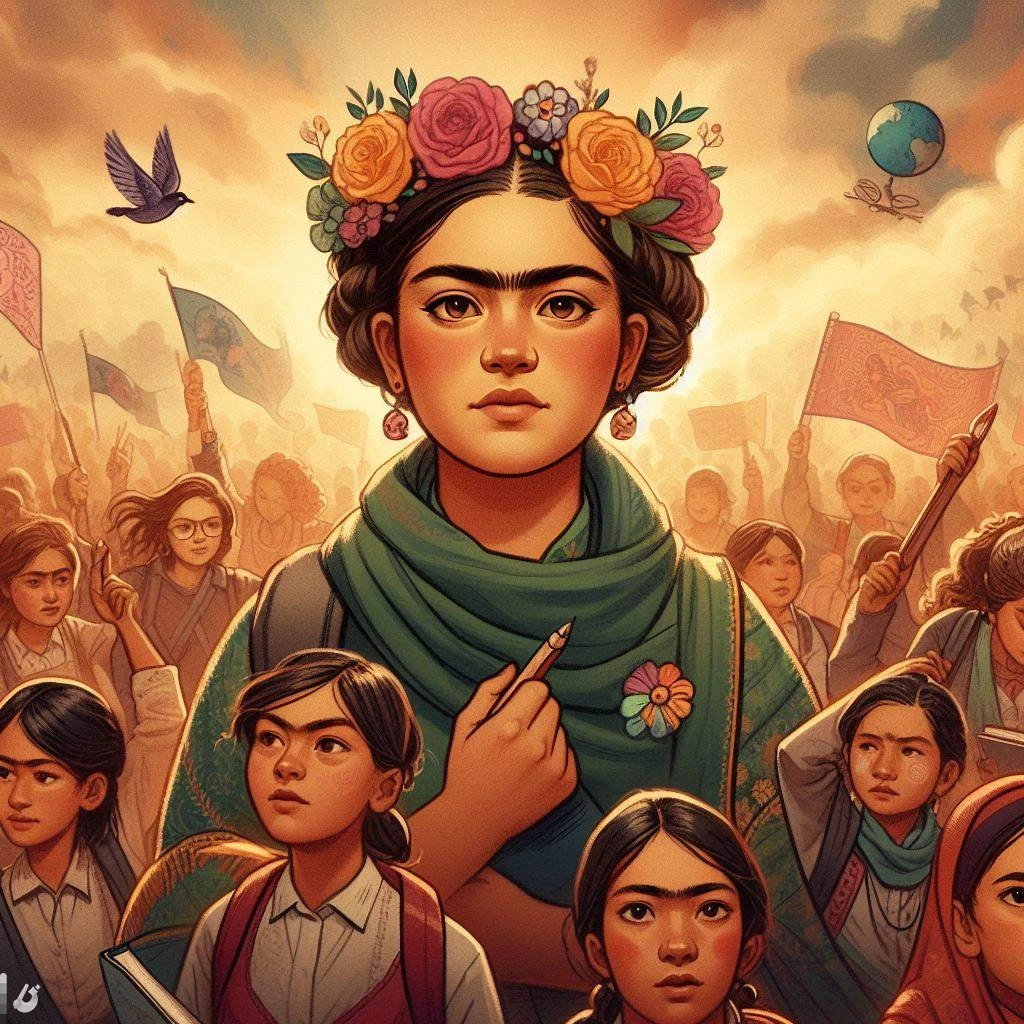
Education plays a critical role in rebuilding societies in post-conflict contexts. It is a means of societal stabilisation, providing a sense of normalcy and hope for the future. By equipping students with employable skills, education contributes to economic recovery and reduces poverty. Furthermore, leveraging education to promote democratic values fosters active citizenship and participation in decision-making processes.
Investing in education during times of war yields long-term benefits for individuals, communities, and nations. It helps break the cycle of conflict and reduces the likelihood of future violence. Education enhances social cohesion and community resilience, fostering unity and understanding among diverse populations. Moreover, education acts as a catalyst for economic growth and innovation, enabling individuals to pursue meaningful careers and contribute to the development of their society.

Education has a significant transformative power in conflict zones. From addressing inequality and providing access to quality education to promoting healing, empowering agents of change, and acting as a catalyst for reconstruction and sustainable development, education holds immense potential in times of war.
Sustained commitment to education initiatives during and after conflicts is crucial to ensure long-term impact. By investing in education, we invest in the future of individuals and societies, paving the way for a brighter future.
Education is not just a means of academic instruction, but a source of hope, resilience, and empowerment amidst the darkest of times. Let us work together to ensure that education continues to shine its light on the lives of those caught in conflict, inspiring hope for a brighter and more peaceful future.
How does education help students cope with the psychological impact of war?
Overall, education serves as a foundation for stability, emotional support, skill development, community-building, and access to mental health support, all of which contribute to helping students cope with the psychological impact of war.
What are some successful examples of education initiatives in conflict zones?
Skolatis is a successful example of education in conflict zones. It gives access to high-quality and international education to students no matter their location and their situation at a very affordable price.
Can education contribute to peacebuilding and reconciliation?
Education can contribute to reconciliation efforts by providing an accurate and inclusive understanding of history, acknowledging past injustices, and promoting mutual understanding and healing. By creating spaces for dialogue and addressing the root causes of conflicts, education can play a role in helping societies move forward and reconcile.
It is important to note that education alone cannot achieve peacebuilding and reconciliation, but it can undoubtedly be a powerful tool in creating the necessary conditions for sustainable peace.
How does education in post-conflict contexts promote sustainable development?
Education in post-conflict contexts promotes sustainable development by fostering peacebuilding, social cohesion, economic development, gender equality, and civic engagement. By investing in education, societies can lay the foundation for long-term peace, stability, and inclusive development.
What are the long-term implications of investing in education during times of war?
Investing in education during times of war is not only an investment in the present but also a strategic investment in the future. It promotes human capital development, peacebuilding, and empowerment, prevents generational gaps, and fosters social development and stability. By prioritising education, societies can lay the groundwork for long-term recovery, resilience, and sustainable development after times of conflict.
Join 62,169 (and counting) IGCSE & AS/A Level subscribers who’ve taken our insanely valuable FREE email courses. Learn exam tips & score A* in your exam!
Muzammil Haider
Muzammil Haider
Yu Xi
Yu Xi
NEEL DHAPRE
NEEL DHAPRE
Ryan Mashru
Ryan Mashru
Dhruvi Mehta
India
Dhruvi Mehta
India
Javaria Asif
Javaria Asif
Uzumaki
Uzumaki
rkhamraeva
Uzbekistan
rkhamraeva
Uzbekistan
M. Nabil Mahmoud
Egypt
M. Nabil Mahmoud
Egypt
Amal Elsayed
Kuwait
Amal Elsayed
Kuwait

Preparing for your IGCSE English as a Second Language (ESL) exam can feel daunting. You are not just learning grammar

Choosing the right educational pathway for your child is one of the most significant decisions a family can make. In

The IGCSE English First Language exam places a strong emphasis on creative writing, with writing descriptive and narrative essays being

In the IGCSE English First Language Directed Writing task, you’ll be required to either write a speech, letter, or article
.